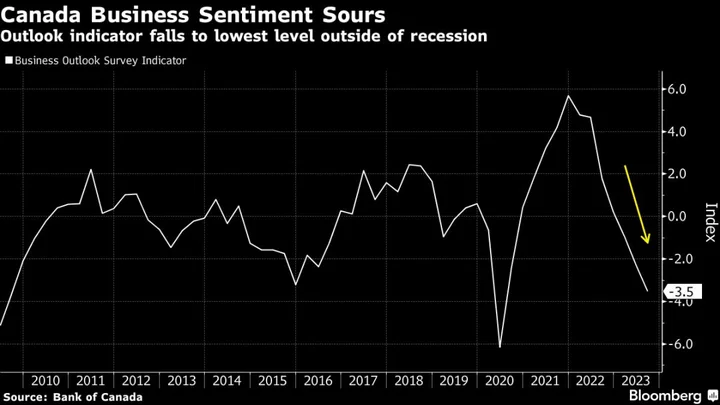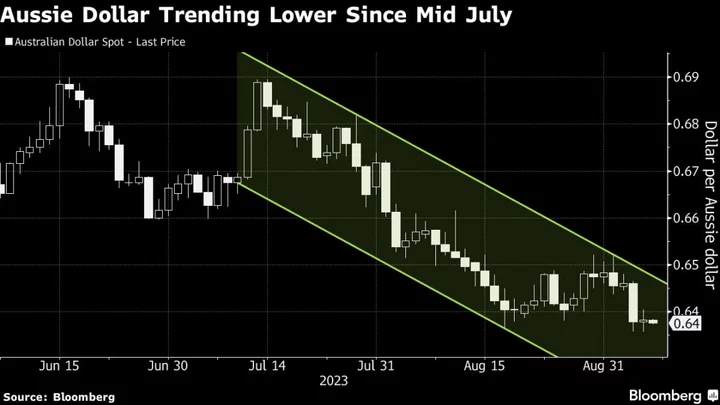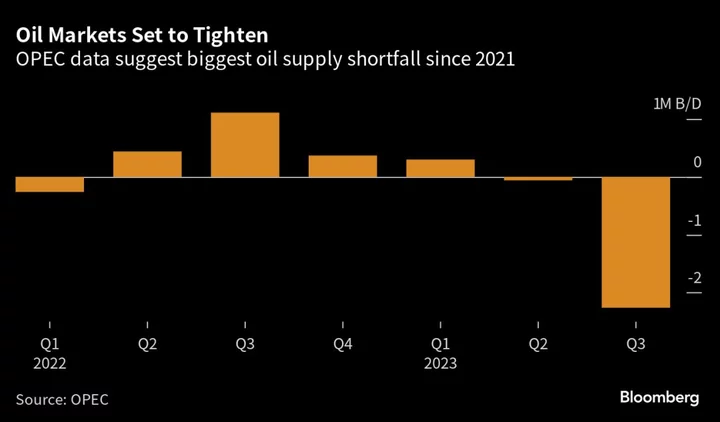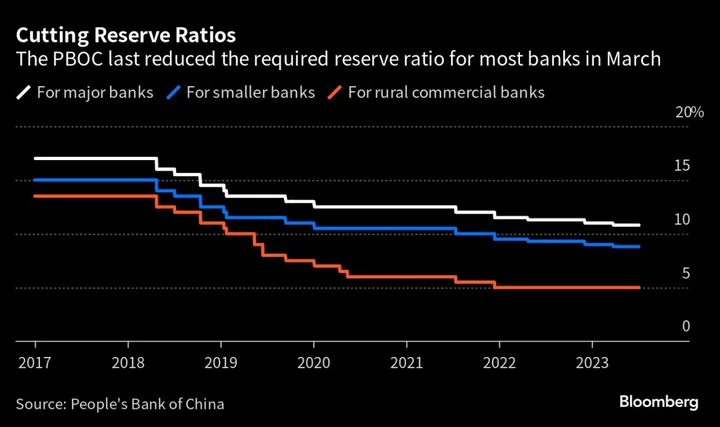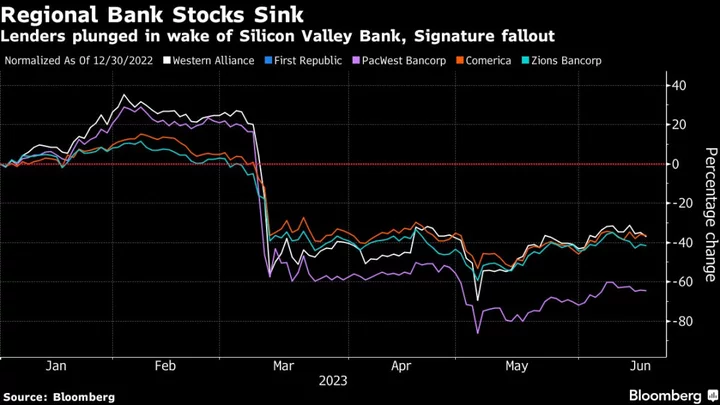Canadian business sentiment fell to its weakest level since the Covid recession of 2020, but inflation expectations of both firms and consumers remain high, Bank of Canada surveys show.
Business executives said economic activity has slowed across a broad range of indicators, according to the central bank’s first quarterly survey since it held interest rates steady at 5% in early September. Still, firms are planning to make larger and more frequent price increases than they did before the pandemic, even as they expect to slow hiring.
Consumers, on the other hand, still see the labor market as healthy despite a worsening outlook, and their expectations for wage growth are now at a survey high. The gap between their perceptions of inflation and actual inflation is also “unusually wide,” the bank said on Monday.
“Overall, these surveys point to a deteriorating economic outlook,” Robert Both, a macro strategist with TD Securities, said in a report to investors. “The erosion in sentiment will allow the bank to look through the limited progress on inflation measures and keep rates unchanged as it grows more concerned over the risk of a hard landing.”
The bank’s business outlook indicator fell to minus 3.5 in the third quarter, from minus 2.3 in the second. That’s the seventh consecutive quarterly decline and one of the lowest levels since the survey began, except during a brief period early in the Covid-19 pandemic.
The continued decline in optimism reflects slower sales growth and weaker indicators of future sales, the bank said. Business leaders are reducing plans for hiring and capital expenditures, and fewer are worried about labor shortages.
Read More: Income Gap in Canada Shrinks as Workers See Strong Wage Gains
The data suggest that while firms expect demand to slow, inflation expectations are taking time to adjust lower. That’s a challenge for policymakers who are betting the cooling economy will translate into a slower rate of price gains in the coming months.
Firms increasingly view sales demand and credit as pressing concerns, additional survey data show, while worries about cost pressures, labor shortages and supply chains are starting to dissipate. At the end of July, nearly half of businesses said the impact of rate hikes was “just beginning.”
In the bank’s business survey, more businesses think higher rates will constrain their sales and investment plans in the next 12 months, and many firms expect that getting inflation to the 2% target will take longer than three years.
The consumer survey showed Canadians’ perception of current inflation remains elevated, with persistently high expectations for inflation over the next 12 months. Many also think increases in rates are raising the cost of living and keeping inflation high. The headline rate of inflation in August was 4%.
Consumers who expect more adverse effects ahead from rate hikes are less likely to plan major purchases, the survey data show. They said they’re more likely to spend on discretionary items, like vacations and concerts, than buy items usually financed with loans, such as cars and appliances.
“Aggressive rate hikes are working as intended, with both businesses and consumers expecting a slowdown in activity,” Shelly Kaushik, an economist at Bank of Montreal, said in a report. “The broadly downbeat tone of these surveys support our call for the bank to remain on hold, with a tightening bias, at next week’s meeting.”
Policymakers led by Governor Tiff Macklem held interest rates steady at 5% in September, but underlying price pressures led the bank to keep the door open for further tightening.
The Bank of Canada next sets rates on Oct. 25. Statistics Canada reports September inflation data on Tuesday.
(Updates with analyst comments beginning in the fourth paragraph and adds additional survey data. A previous version corrected the headline and business outlook indicator numbers.)
Author: Erik Hertzberg and Randy Thanthong-Knight

